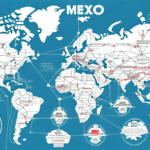What Is Economy Shipping? A Comprehensive Overview
Economy shipping is a cost-effective method for transporting goods and parcels, offering lower rates compared to expedited shipping options. This shipping method is favored by both businesses and individuals for its affordability, particularly suitable for non-urgent deliveries. Economy shipping typically utilizes ground transportation, such as trucks and trains, which contributes to its reduced costs and smaller carbon footprint. In this article, we delve into the intricacies of economy shipping, examining its benefits and drawbacks, operational mechanisms, cost structures, international considerations, common misconceptions, risk mitigation strategies, the impact of recent global events, and future trends.
Benefits and Drawbacks of Economy Shipping
Advantages
- Cost-Effective: The primary advantage of economy shipping is its affordability, making it an ideal choice for bulk orders and individuals seeking to minimize shipping expenses.
- Environmental Sustainability: Economy shipping often employs slower, less carbon-intensive transportation modes, such as rail or sea, resulting in a lower environmental impact compared to air or expedited ground services.
- Suitable for Non-Urgent Deliveries: For goods that are not time-sensitive, economy shipping provides a reliable option without the premium costs associated with faster services.
Disadvantages
- Longer Transit Times: Economy shipping generally involves extended delivery periods, which may not be suitable for time-sensitive or perishable items.
- Limited Tracking and Support: Some economy shipping options offer basic tracking features and minimal customer support, which can be a concern for high-value or fragile items.
- Potential for Additional Fees: International economy shipping may incur unforeseen costs such as import duties, taxes, and customs fees.
Operational Mechanisms of Economy Shipping
How It Works
Economy shipping services are provided by major carriers like FedEx, UPS, and DHL. The process begins once an order is placed, where the sender prepares and packages the items according to the carrier's specifications. The package is then weighed, labeled, and scanned before being consolidated with other shipments heading to the same destination. Ground transportation is predominantly used, which contributes to the slower delivery times but significantly reduces costs.
Cost Structure
The cost of economy shipping is influenced by factors such as package weight, dimensions, destination, and the volume of goods being shipped. For example, Statista reports that the global shipping industry was valued at approximately $10.5 trillion in 2022, highlighting the scale and competitive pricing within the market. Bulk shipments often benefit from discounted rates, making economy shipping even more advantageous for large-scale operations.
International Economy Shipping Considerations
Customs and Regulations
Shipping goods internationally via economy services requires adherence to various customs regulations, including accurate labeling and completion of necessary customs documentation. Failure to comply can result in delays, fines, or seizure of goods. It is essential to stay informed about the destination country's import policies and any restrictions on specific items.
Additional Costs
International economy shipping may involve extra expenses beyond the base shipping fee, such as import duties, value-added taxes (VAT), and brokerage fees. For instance, Trade.gov provides comprehensive guidelines on tariffs and taxes applicable to different regions, helping senders anticipate and budget for these costs effectively.
Dispelling Common Misconceptions
Reliability and Security
A prevalent misconception is that economy shipping is unreliable or insecure. In reality, reputable carriers offering economy services maintain high standards for package safety and tracking. According to UPS, economy shipping options include tracking capabilities, allowing senders and recipients to monitor the package's progress.
Suitability for All Package Types
Another misconception is that economy shipping is unsuitable for valuable or fragile items. While economy services may offer limited insurance, senders can often purchase additional coverage to protect high-value goods. Additionally, proper packaging can mitigate the risks associated with transit handling.
Comparing Economy Shipping to Other Options
Standard vs. Express Shipping
Compared to standard and express shipping, economy shipping is more affordable but comes with longer delivery times. Express shipping ensures faster delivery and often includes more comprehensive tracking and customer support, making it suitable for urgent or high-value shipments.
Choice Based on Needs
- Economy Shipping: Best for non-urgent, bulk, or cost-sensitive shipments.
- Standard Shipping: Balances cost and delivery speed, suitable for most general shipments.
- Express Shipping: Ideal for urgent deliveries requiring speed and enhanced service.
Strategies to Mitigate Risks in Economy Shipping
Choosing Reputable Carriers
Opting for well-established shipping companies with proven track records can minimize risks associated with economy shipping. These carriers typically offer better reliability, customer service, and security features.
Proper Packaging and Labeling
Ensuring that packages are securely packed and accurately labeled reduces the likelihood of damage and misdelivery. Using sturdy materials and clear labeling can safeguard the contents throughout the shipping process.
Insurance and Tracking
Purchasing additional insurance and utilizing tracking services provide financial protection and visibility over the shipment's status, enhancing overall security and peace of mind.
The Impact of COVID-19 and Future Trends in Economy Shipping
Effects of the COVID-19 Pandemic
The COVID-19 pandemic significantly disrupted global logistics, leading to increased shipping times and costs due to reduced transportation capacities and heightened safety protocols. According to a PwC survey, many shipping companies reported a surge in e-commerce demand, further straining economy shipping services.
Innovations and Future Outlook
The economy shipping sector is evolving with advancements in technology and sustainability initiatives. Innovations such as automated sorting systems, improved tracking technologies, and the adoption of electric vehicles are enhancing efficiency and reducing environmental impacts. Future trends indicate a continued focus on sustainability, cost reduction, and enhanced service options to meet the growing demands of global commerce.
Key Takeaways for Businesses Offering Economy Shipping
Enhancing Customer Satisfaction
Offering economy shipping can boost customer satisfaction by providing affordable shipping options, which can be a decisive factor for price-sensitive consumers. Implementing clear shipping policies and reliable service can further enhance the customer experience.
Sustainability and Corporate Responsibility
Businesses should consider partnering with carriers that prioritize eco-friendly practices, such as using renewable energy sources and minimizing packaging waste. This not only contributes to environmental sustainability but also appeals to increasingly eco-conscious consumers.
Conclusion
Economy shipping presents a viable solution for cost-effective transportation of goods, balancing affordability with environmental sustainability. While it offers numerous benefits, including lower costs and reduced carbon emissions, it also comes with challenges such as longer delivery times and potential additional fees. By understanding the mechanisms, benefits, and drawbacks of economy shipping, businesses and individuals can make informed decisions that align with their shipping needs and sustainability goals. As the shipping industry continues to evolve, economy shipping will likely remain a crucial component of global logistics, adapting to new technologies and market demands.




















